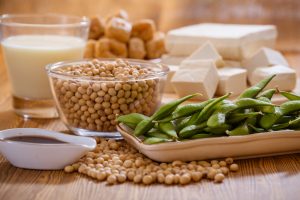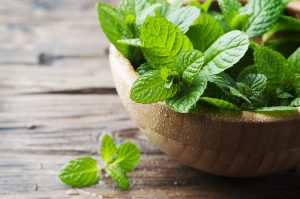Our testosterone levels go down as we age. We often try to find ways of keeping our levels at their top. Sometimes, we take over the counter supplementations. We also seek advice from our doctors on how we can improve our testosterone levels. Among the recommendations we receive from our doctors is improving our diets and lifestyle.
Did you know that not all foods are safe for your testosterone? Some diets harm your testosterone levels. The following foods are harmful to this hormone, and you should avoid them:
1. Soy Products
Soy has been hailed for its health benefits for a long time. But it is time we review its effects on men’s health. Although it is recommended for other health benefits, this great food protein seems to affect testosterone levels in a negative way. Researchers report that soy contains phytoestrogens. These are substances found in plants, and they mimic estrogen.

When estrogen is mimicked, the body detects a change in hormone and stops producing testosterone. The amount of testosterone thus reduces with time as the brain will signal the testes to stop its production. A study from the University of Connecticut also revealed that soy boosts the production of cortisol. Cortisol is a stress-causing hormone in our bodies.
Stress is a common factor that prohibits the production of this essential male hormone.
2. Flax Seeds
Flax seeds are a good source of Omega 3 fatty acids, fiber, and other essential vitamins. It is also rich in lignan, a compound that is estrogenic. These seeds can work best for women as the compound lignan helps in reducing the amount of testosterone in the body. A study carried out on women with testosterone levels reported a 70% decline of testosterone and 89% that of free testosterone.
That said, these seeds are a nightmare in your masculine features. The rate at which flax reduces this male’s important hormone is grave. The effect is true even on men. Even if this seed contains a lot of nutritional benefits, perhaps it is time to look for other alternatives. Of course, if testosterone levels are of concern to you.
3. Alcohol
People use alcohol for different reasons. Some want to celebrate success, others just want to have fun, while others want to drown their memories. Whichever the course, consumption of alcohol without control comes with negative effects.
A study on a group of men revealed that those consumed alcohol daily had an 8.9% decrease in testosterone. Those that did not consume alcohol did not affect their testosterone levels.
The study also revealed that alcohol triggers the production of enzymes that convert testosterone to estrogen. The aftermath of this conversion is more feminine features which dominates your masculine physique.
Alcohol also contains a lot of calories which get converted to fats. Fat leads to weight gain. Again, uncontrolled weight gain is a cause of a decrease in the production of testosterone.
4. Sweetened Foods
Most sweetened foods usually are processed. Natural sugars such as honey and sugarcane are good for your health; however, other processed sugars are dangerous to you. These sugars are hard to metabolize and are often converted to fat. This fat is deposited in most parts of our body including the blood vessels. We, therefore, gain excess weight.
Excess weight hinders the production of testosterone. According to urologists, when we gain body fat, we activate an enzyme that converts testosterone to estrogen. The more we gain fat, the higher the conversion rate of testosterone to estrogen. If we do not take control of our body fat, conversion of testosterone continues. With time, our testosterone levels will be below the recommended amount from the Endocrine Society.
5. Mint

Mint has a lot of benefits starting from that refreshing breathe it gives to stomach-soothing properties. These benefits, however, do not extend to testosterone production. In fact, mint gives a contrasting effect on testosterone.
The most affecting types of mint are peppermint and spearmint. Several studies were carried out on these mints; they revealed that they reduced testosterone at a significant rate. Spearmint gave a 51% decline while peppermint decreased the hormone by 23%. The mints were also found effective in reducing testosterone in women at an average rate of about 30%.
How to Keep Off Foods That Reduce Testosterone
It can be difficult to determine the type of food to include in your diet. We want to go for foods that add value to our health. Some foods are nutritionally rich, but when it comes to some functions, they miss their value.
In order to remain safe on what we eat, it is good to:
- Seek advice from certified nutritional practitioners. We can find relevant information that has no conflicting ideas.
- We can also read on detailed researches that have been certified before publishing. This practice will protect us from biased information available from all over.
- Attend certified nutritional seminars and exhibits that teach on different food choices. It will help us make informed decisions on what we take.
Our sole mandate is to protect our testosterone levels. We should always aim to be proactive on this issue. One of the key points is in learning and avoiding foods that do not give a positive contribution to the production of this precious hormone. At this point, having some basic food knowledge can help.







